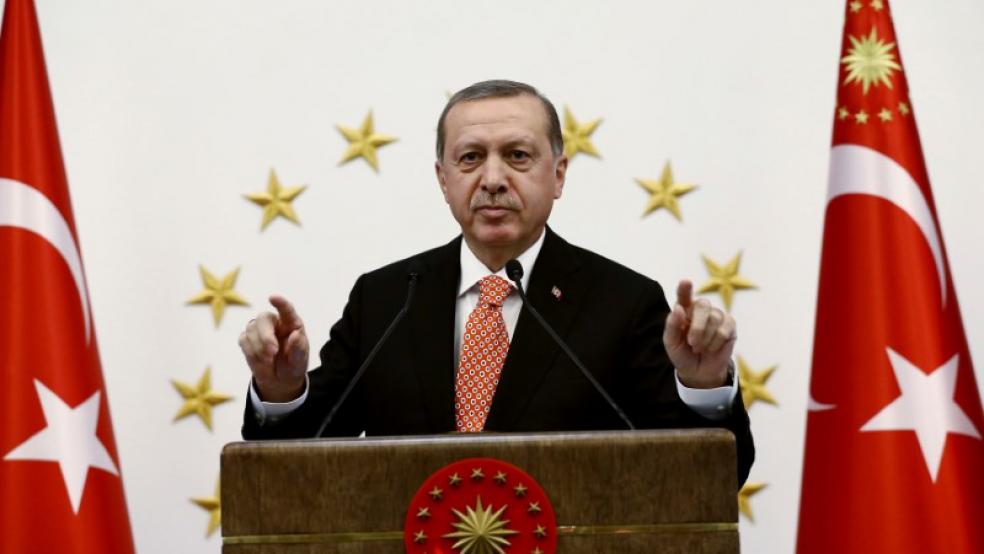ANKARA (Reuters) - The head of Turkey's main opposition said tens of thousands of people had suffered injustices in government purges since a failed military coup, and announced he was setting up a special team to help them.
The comments from Kemal Kilicdaroglu could anger President Tayyip Erdogan and threaten the fragile unity that has existed between the government and much of the opposition since the failed July putsch in which about 240 people were killed.Turkish authorities have sacked or suspended some 100,000 members of the military and civil service, including teachers, prosecutors and police officers for suspected links to U.S.-based cleric Fethullah Gulen, whom Ankara blames for the plot. At least 40,000 people have been detained.Gulen, who has lived in self-imposed exile in the United States since 1999, has denied the accusations and condemned the coup. The scope of the crackdown has raised concern from human rights groups and Turkey's Western allies, who fear Erdogan is using the abortive coup as a pretext to curtail dissent.Kilicdaroglu, head of the secular Republican People's Party (CHP), told broadcaster CNN Turk in an interview late on Monday all action should be conducted within the framework of the law."Anyone can be detained for being related to FETO," he said. "The government needs to determine objective criteria." FETO refers to the "Gulenist Terror Organization", the name Ankara has given to the cleric's network of supporters. Turkey says that Gulen's followers infiltrated the civil service, courts and military with the intent of toppling the government, a charge the cleric denies.CRITERIA"We have formed a team in the party for the FETO victims. They can come and apply with us," Kilicdaroglu said. "We have received information that 25,000 people have suffered injustices so far."In words directed at the government, he added: "What criteria are you using to suspend officials?"Gulen and Erdogan were allies until they had a public falling out in 2013.Erdogan told Reuters in an interview in New York on Monday that the United States should "not harbor a terrorist" and that his activities should be banned around the world.Following the coup, Turkey imposed a three-month state of emergency. Since then, the crackdown has widened further, with authorities targeting teachers in the mainly Kurdish southeast for alleged links to Kurdish militants."The state of emergency should be used to bring the country back to normal," Kilicdaroglu said. "But they took things completely unrelated to the coup and put them in with the state of emergency."Erdogan told Reuters the state of emergency could be extended, if necessary. Critics have said that extending the state of emergency would give Erdogan a freer hand to limit or suspend freedoms, to bypass the parliament as well as taking swift measures against his opponents. "It can be extended for three months or one month or even more...Gulen's people have infiltrated everywhere," Erdogan said. (Writing by David Dolan; Editing by Daren Butler; editing by Ralph Boulton)Turkish opposition says tens of thousands suffer injustice in purge

HANDOUT



